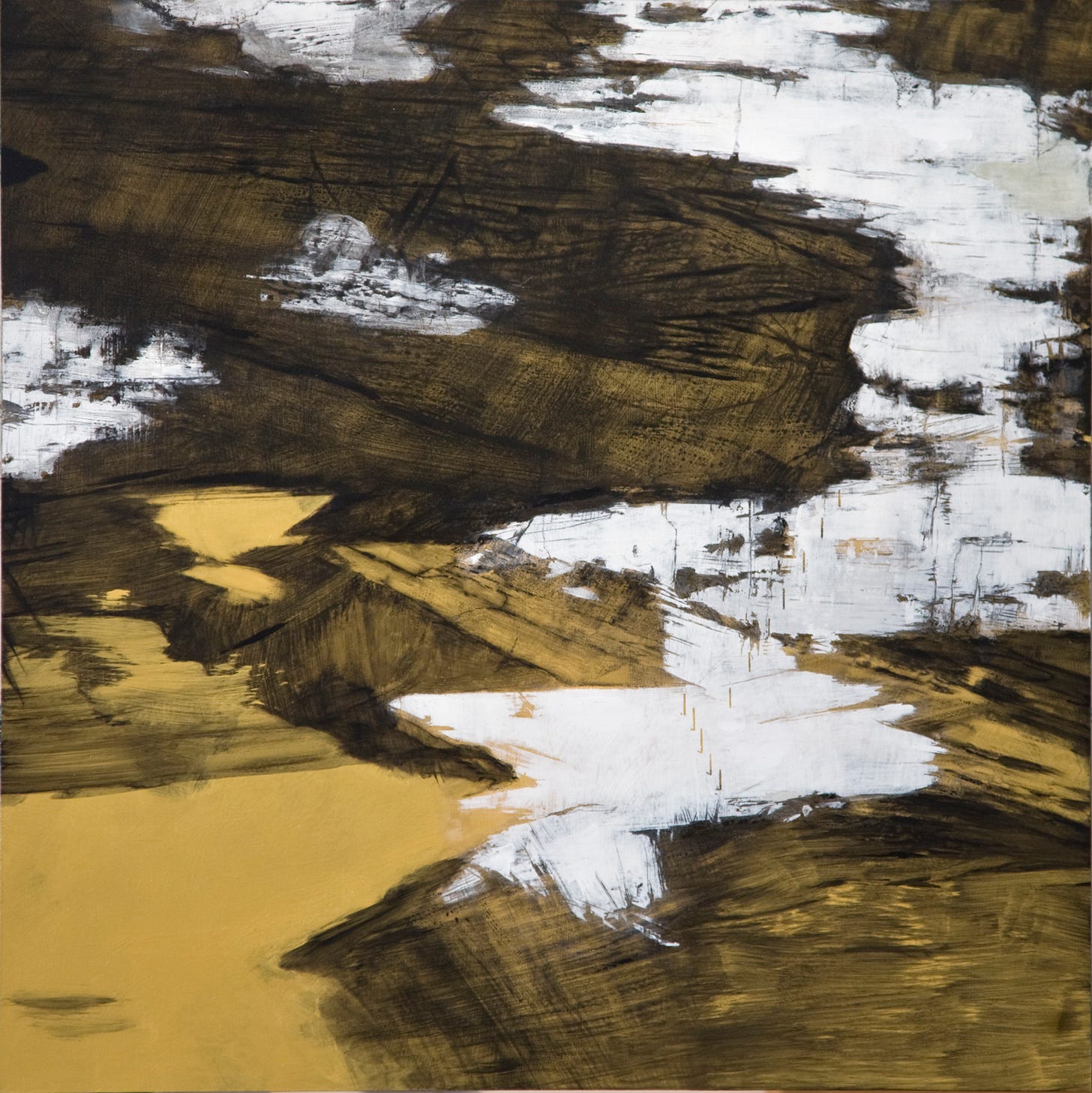Within the draw to change is an engrained desire to also know what, amidst all of the debris that leaves us and flows away, stays constant. The desire for change is etched into our DNA, as is the attraction to a sense of a story: he shape of a person is suggested only by the solidity of their character through evolving circumstances. Every story is a story of water — an idea I’ve heard in many forms from so many people I can’t remember its source.
Water is a strange thing: it is maybe the most physical, tangible symbol of the intangible forces in the world. It rushes into and fills the space between real and unreal; physicality and potentiality; stasis and movement. Water as metaphor for metamorphosis is straightforward — on-the-nose, even — and empirically, visually, experientially verifiable. Those of us who tense up at the mention of a soul or reincarnation could much more comfortably accept that a drop of water going down our kitchen sink might one day rain over the Himalayas. Given enough time.
Rational scientists love water as much as sensitive artists do. When astronomers look for life on other planets, they look for patterns in the light that indicate water, because it harbours the potential for life. They look far out into the observable universe even into spinning bodies that are thousands of light years away, and therefore outdated, because it does not seem relevant whether or not life is currently thriving, but that it has been, that it might be, that it will be. A part of being human is to be endlessly entranced with potential, because it is what suggests both our history and our future, implying an opening through which we might fall deeper into our life.
We love things most for what they suggest to us rather than what they truly are, and so everything we want most will also disappoint us. ‘The blue of distance’, as put by Rebecca Solnit, describes the particles (or waves, depending on how you look at them) of light which fail to travel the whole distance from the sun to us and get lost in the liminal space in between: the water and the sky — the vastness which, like the ninety nine point nine repeater empty space of atoms, occupies most of everything. The delicious blue which shades the distance between our field of reach and our field of desire.
In Robert Heinlein’s ‘Stranger in a Strange Land’, to “grok” is a Martian word whose meaning made up of the shaded area constellated between several stars: “to understand deeply”, “to empathise with”, “to be familiar with”, and crucially “to drink”. For Heinlein’s Martians, water is scarce and therefore precious and even divine. Divine as in the same way that perhaps the Himalayas became a spiritual place because it was so fertile: an improbable cradle of abundance an life. To ‘grok’ emphasises the necessity of knowing something so deeply that it is entwined with your survival, your bodily composition. It is merging with something to the point of embodied, rather than intellectual experience.
For the foreigner or immigrant who finds themselves a ‘stranger in a strange land’, whether physical or psychological, it is a little elusive what exactly it is that draws them outward and away. Many delusions are to be surrendered: familiarity, or the ability to ‘grok’ one’s place in the world, is no longer taken for granted but is recognised as the basis of a stable existence.
For immigrants then the next generation ‘diaspora’ inherits a far more severe and less treatable disease of longing. The worst afflicted might develop the compulsion to cloak themselves in awkward cosplays of their mother culture, no matter how childish or inaccurate they are, fixated on authenticity and culture yet simultaneously lacking a real reference point of their own.
They are searching for a representation that does not exist. A dream: they might seize an American one with both hands, or an Australian one, too. They will work hard to locate their grand roots or stamp their flimsy, fading image into the earth. The longing for a past intermingles with the longing for a future, because beneath both are the same instinct: the longing for a solidity of self to cling to, whether proven by history or promised by fate.
Something that the foreigner finds is that all stories are brittle, no matter how large they are writ: mythologies, cultures, families, personal history. The grander and older they are, the closer they are to crumbling, and they will dissolve and be destroyed with the slightest dose of water.




